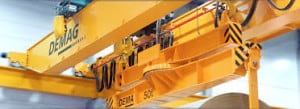US Manufacturing Industry Report: 5 Big Trends to Watch
2017 has been an exciting year for the manufacturing industry. The industry has seen some major breakthroughs and taken some surprising turns.
The US manufacturing industry now stands to be one of the major influencing forces of the year on the US economy and workforce.
5 Things You Should Know About the US Manufacturing Industry
We’ve combed the latest headlines to come up with the top 5 trends and statistics that are taking the US manufacturing industry by storm.
1. Manufacturing Employment is at a Steady Low
Manufacturing jobs in the US are currently at 12.4 million. While this number reflects an increase since 2010, when it was only 11.5 million, it shows a sharp decline since peaking in 1979 when there were 19.4 million workers in the industry. Today, the overall industry remains at its lowest since before WWII.
2. South and Midwest Regions Have Been Hit Hardest by Decline in Jobs
Areas that have traditionally relied on manufacturing in the south and midwest have been hit the hardest by the loss of jobs available. The obvious effects that the decline has had on workers may lend to the fact that four out of five Americans, are aware that jobs in the industry are down, according to Pew Research Center.
3. Jobs May Be Down, But Productivity is Up
Most Americans may realize that jobs are down, but what most don’t know is that output has grown. Pew Research Center’s report claims that while 81% of Americans realize that manufacturing employment has decreased, only 35% know that productivity has increased.
The gains have varied widely across manufacturing industry categories.
The report shows that there has been a whopping 2,600% increase in productivity in computer and electronics since 1987. However, in motor vehicles and parts, the percentage has ebbed and flowed, dropping during the recession, but now showing a 124% lead over its level of output in 1987. And, the textile sector has seen an overall decrease in productivity since 1987 of over 50%.
4. Advances in Automation Lend to Productivity Increase
How can one of the industries with the biggest losses in jobs account for its thriving rate of production? The answer, at least to a major degree, lies in the growth of automation.
Few industries aren’t at risk for being affected by the reliance on automation. Among them, first line supervisors of mechanics, installers, and repairers.
5. New Research Indicates 1 in 4 Jobs at Risk for Being Off-Shored
In addition to automation, off shoring has created yet another option for less expensive labor costs. In an effort to cut spending, many companies will turn to off shoring to meet their production needs.
25% of Americans are at risk of losing their positions to offshoring.
This may be a good deal for the companies, but it comes as a cut to the national workforce, whose manufacturing jobs have already suffered major losses.
Conclusion
If you are in the manufacturing industry, you need to know the latest stats and information. The manufacturing industry is changing in a major way. Make sure that you stay on top of the information that you need to know!
Click here for more of the latest manufacturing news!


 Kor-Pak is proud to announce that they are now ISO 9001:2008 certified which is another step that will take Kor-Pak to the next level as they are seeking aggressive growth strategies.
Kor-Pak is proud to announce that they are now ISO 9001:2008 certified which is another step that will take Kor-Pak to the next level as they are seeking aggressive growth strategies.
